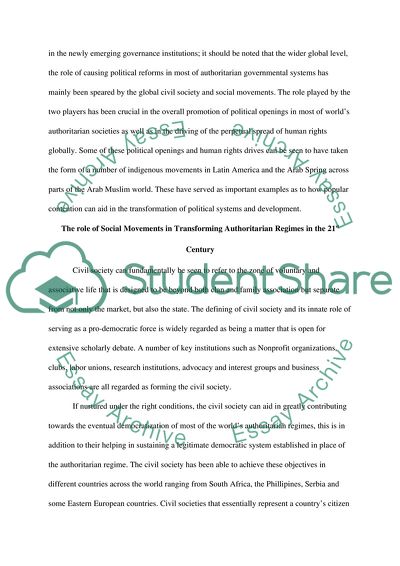Cite this document
(The Role of Political Actors in the Shaping of Authoritarian Regimes Essay, n.d.)
The Role of Political Actors in the Shaping of Authoritarian Regimes Essay. https://studentshare.org/politics/1803119-the-role-of-various-political-actors-in-shaping-the-transformation-of-21st-century-authoritarian-regimes
The Role of Political Actors in the Shaping of Authoritarian Regimes Essay. https://studentshare.org/politics/1803119-the-role-of-various-political-actors-in-shaping-the-transformation-of-21st-century-authoritarian-regimes
(The Role of Political Actors in the Shaping of Authoritarian Regimes Essay)
The Role of Political Actors in the Shaping of Authoritarian Regimes Essay. https://studentshare.org/politics/1803119-the-role-of-various-political-actors-in-shaping-the-transformation-of-21st-century-authoritarian-regimes.
The Role of Political Actors in the Shaping of Authoritarian Regimes Essay. https://studentshare.org/politics/1803119-the-role-of-various-political-actors-in-shaping-the-transformation-of-21st-century-authoritarian-regimes.
“The Role of Political Actors in the Shaping of Authoritarian Regimes Essay”. https://studentshare.org/politics/1803119-the-role-of-various-political-actors-in-shaping-the-transformation-of-21st-century-authoritarian-regimes.


